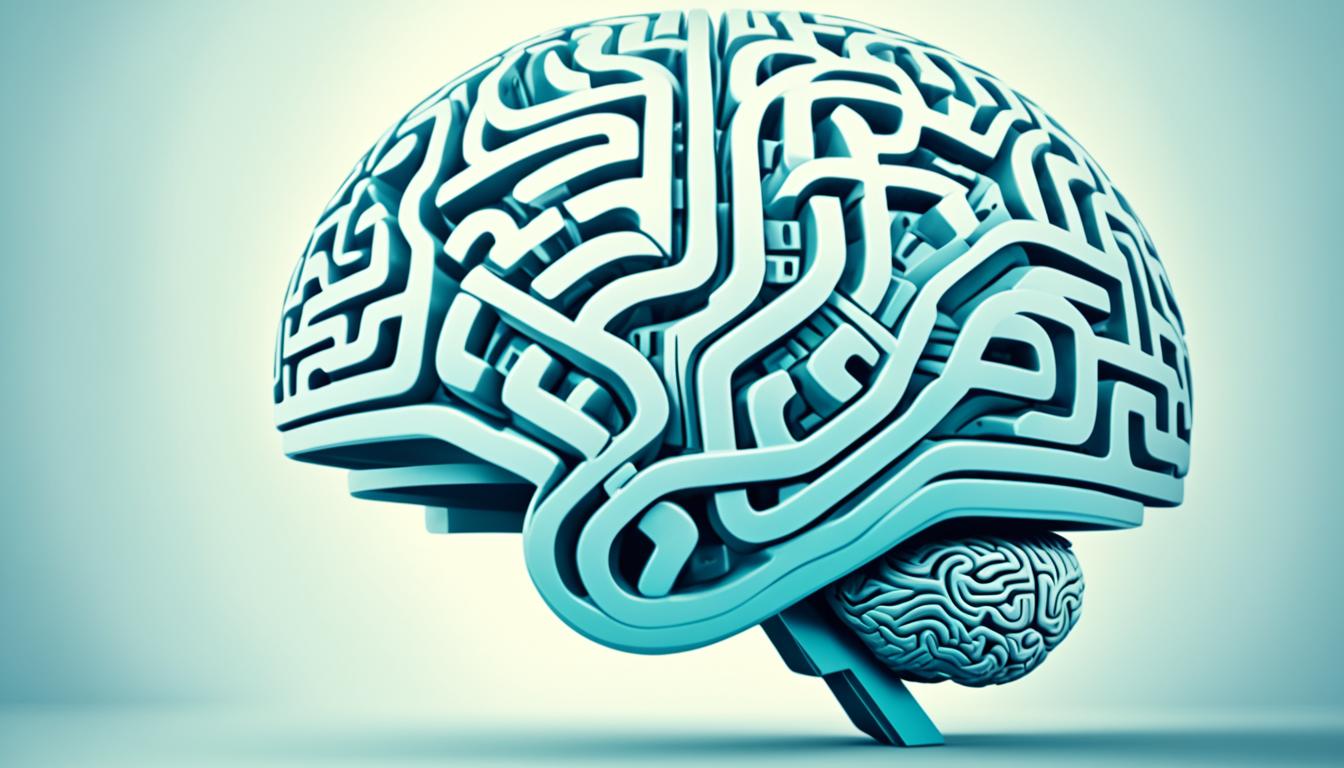Mild cognitive impairment (MCI) is a type of brain function decline that’s more than normal age changes. It’s about having trouble with memory, speaking, and thinking. MCI is less severe than dementia but can lead to it. Its signs include forgetting things, losing items, and struggling with complex tasks.
Getting a diagnosis for MCI involves tests to check your thinking. It’s important to see a doctor if you’re having memory or thinking problems. Early treatment can slow down or stop MCI from getting worse, improving your life.
Stem cell therapy is a new hope for treating MCI. Using stem cells aims to boost new brain cell growth and thinking abilities. Scientists are still looking into how effective and safe this therapy is for MCI. Stem cells can become brain cells and help other brain cells grow.
Key Takeaways:
- Mild cognitive impairment (MCI) is a form of cognitive decline that exceeds normal age-related brain changes.
- It involves issues with memory, speaking, and thinking.
- It’s vital to spot and treat MCI early. This can slow its progress and better your life.
- Stem cell therapy may help by encouraging new brain cell growth and boosting thinking skills for MCI patients.
- But to use this therapy more widely, there’s still much research to be done.
Causes and Risk Factors of Mild Cognitive Impairment (MCI)
Mild cognitive impairment (MCI) affects memory and thinking in a slight way. Its causes are not fully known, but there are known risk factors. Knowing these can help reduce MCI’s risks.
Aging
Getting older is a big risk for MCI. Yet, it’s not just a part of getting old. Many older adults don’t face MCI.
Family History and Genetics
If dementia or Alzheimer’s runs in your family, it heightens your MCI risk. The ApoE4 gene makes the risk of MCI and Alzheimer’s higher.
Cardiovascular Disease
Heart conditions like high blood pressure link to MCI. A healthy heart means a healthy brain and less risk of memory issues.
Diabetes
Type 2 diabetes also ups the MCI risk. This is because high blood sugar can hurt your thinking abilities over time.
Lifestyle Factors
How you live can also affect MCI risks. For example:
- Smoking can make blood vessel damage and cognitive decline more likely.
- Not moving much harms your brain and can lead to thinking problems.
- Eating lots of bad fats, processed foods, and sugar is also linked to MCI risks.
But, having these risks doesn’t mean you’ll get MCI. Also, not all with MCI get dementia. It’s more about what you do. Regular exercise, a smart diet, and managing health issues can help. They can lower your MCI risk and keep your brain healthy.
| Risk Factors | Description |
|---|---|
| Aging | The most significant risk factor for MCI. Risk increases with age. |
| Family History and Genetics | Having a family history of dementia or Alzheimer’s disease. Genetic factors like the ApoE4 allele. |
| Cardiovascular Disease | Presence of cardiovascular conditions, such as high blood pressure or heart disease. |
| Diabetes | Presence of type 2 diabetes. |
| Lifestyle Factors | Risk factors include smoking, sedentary lifestyle, and poor diet. |
Diagnosis and Management of Mild Cognitive Impairment (MCI)
Diagnosing Mild Cognitive Impairment (MCI) includes looking at memory, language, and thinking skills. Doctors use various tests like the ADAS-Cog, MMSE, and MoCA. These tests help figure out if someone might have MCI.
Doctors also check a patient’s health history to rule out things like depression. They want to be sure what’s causing the cognitive changes. This thorough process helps find the right diagnosis.
After an MCI diagnosis, the focus is on keeping the brain healthy. Exercises, a good diet, and activities that stimulate the mind are key. These steps can prevent MCI from getting worse.
Researchers are looking into new ways to treat MCI, including drugs and stem cell therapy. These methods might one day help address the symptoms and memory loss. Stem cell treatment, in particular, aims to boost brain health.
Benefits of Cognitive Screening
Tests like the ADAS-Cog, MMSE, and MoCA are not just for diagnosis. They are also used to see if MCI is getting worse. Regular testing can help doctors adjust treatments early. This makes managing MCI more effective.
The Role of Lifestyle Interventions
Improving daily habits can make a big difference in handling MCI. Exercise and a good diet can boost memory. Including foods with omega-3 and doing brain exercises is good too.
| Management Strategies for MCI |
|---|
| – Regular exercise |
| – Healthy diet |
| – Cognitive stimulation activities |
These lifestyle changes can help people with MCI lead better lives. They might keep their thinking and independence longer.
Stem Cell Therapy for Mild Cognitive Impairment (MCI)
Stem cell therapy is showing promise for those with mild cognitive impairment (MCI). This treatment involves putting stem cells into the brain. The goal is to grow new brain cells and boost thinking skills.
Specifically, mesenchymal stem cells are gathering attention. They come from places like the bone marrow or fat tissue. These cells have been great at fixing and regrowing the brain. They can turn into brain cells and help existing ones survive and grow.
Though using stem cell therapy for MCI is new, the first findings are exciting. People getting this treatment have seen their thinking abilities get better. Yet, more studies and tests are needed to know how effective this therapy truly is.

